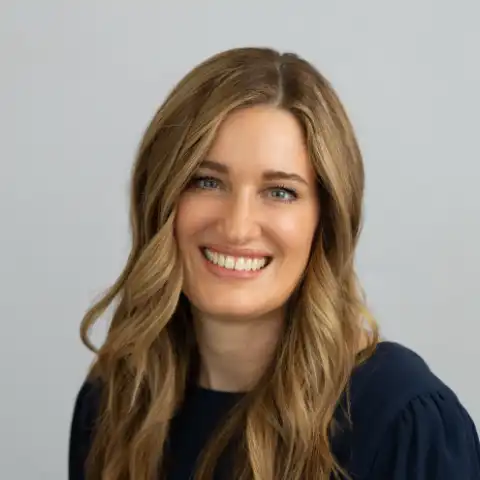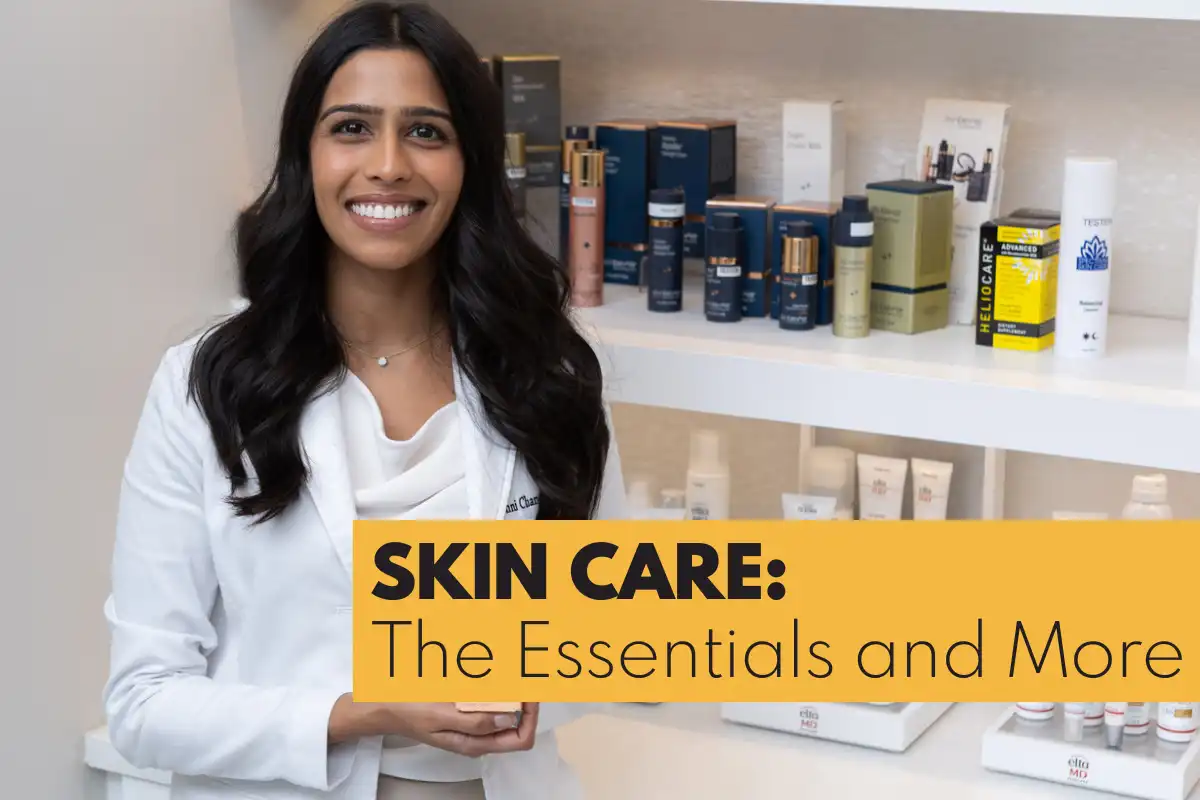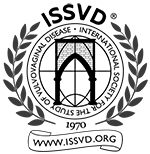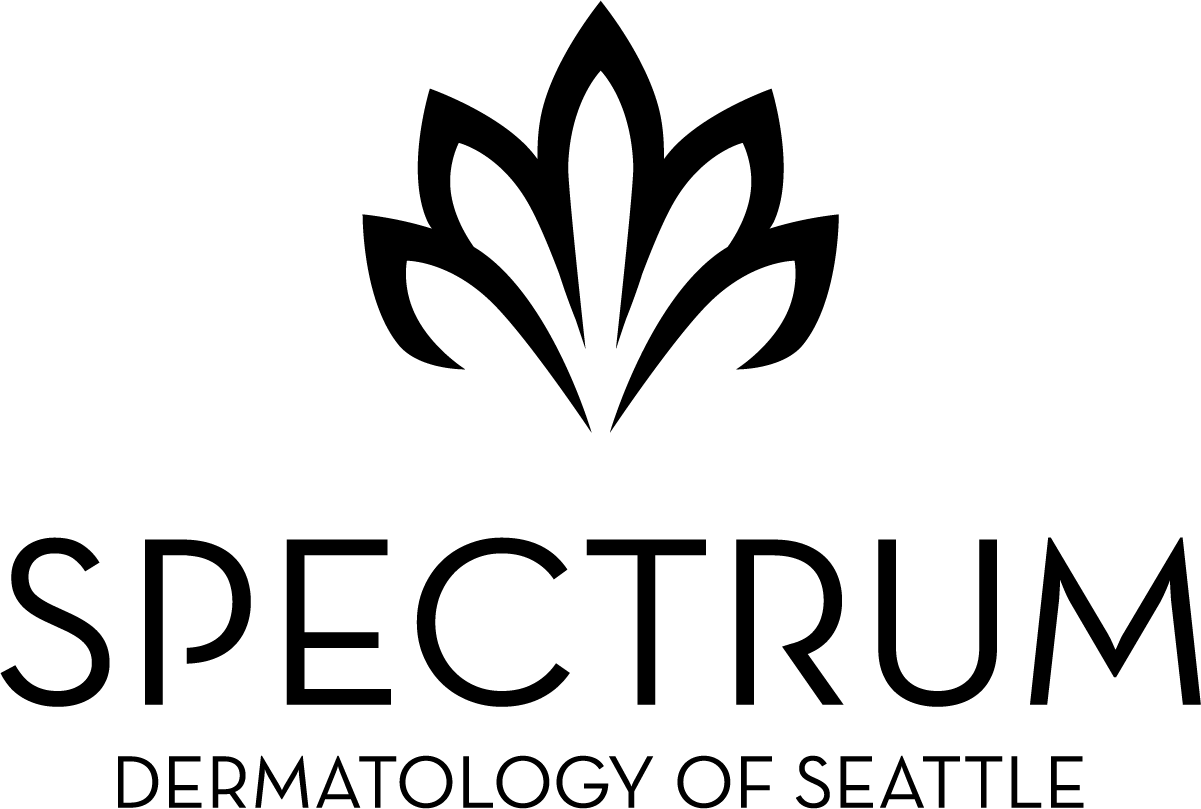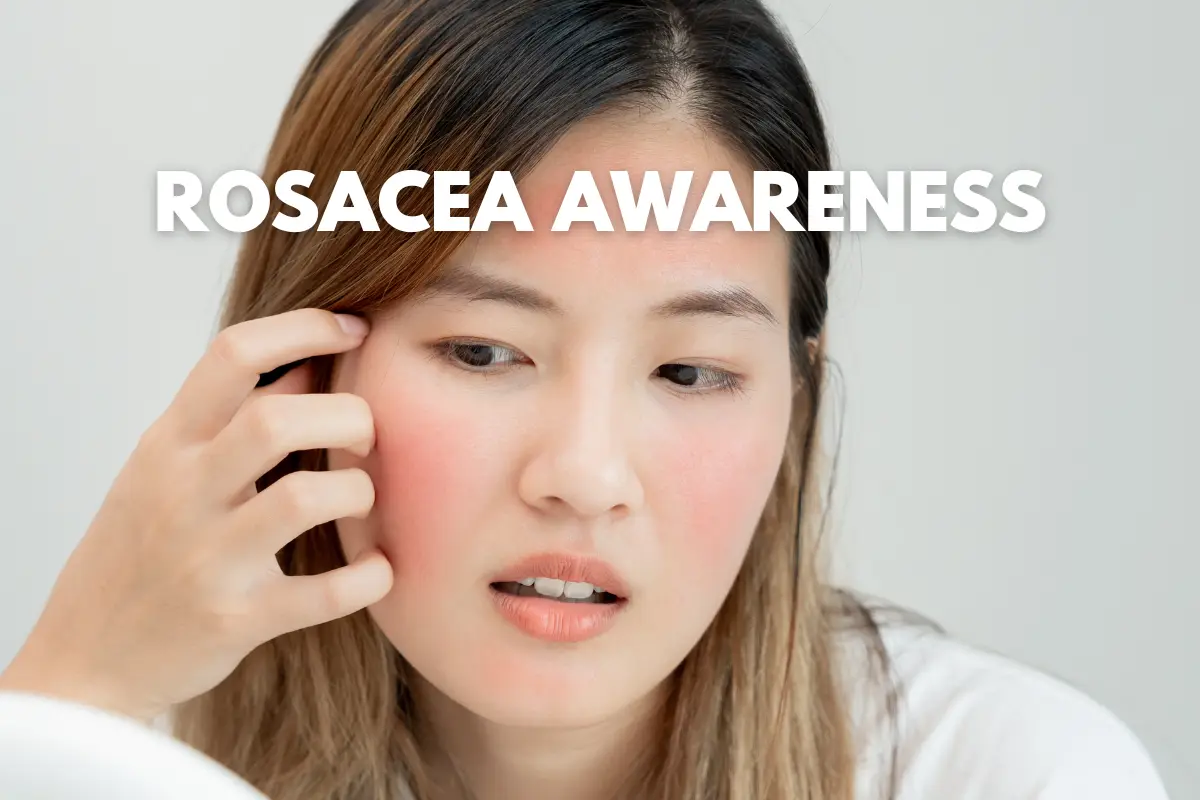
What is Rosacea?
Rosacea is a chronic inflammatory skin condition that mainly affects the face. It can occur in all skin types but is more common in light-skinned individuals, people with more sun damage, and people with a family history of rosacea.
What does rosacea look like?
People with rosacea will have redness, dilated blood vessels, and flushing most prominently on the cheeks and central face. Some individuals also get acne-like bumps, which can be tiny superficial red pimples or pustules or can be deeper and cystic. The pimple-like presentation is most common in skin of color. Rosacea can also affect the eyes and may be diagnosed as “blepharitis”, and present as dry eyes, redness, and even styes.
What are some misconceptions about rosacea?
People with rosacea often feel stigmatized by an erroneous association with alcohol abuse. While it's true that drinking alcohol can trigger flushing, alcohol does not cause rosacea, and rosacea is not an indicator of alcoholism or alcohol abuse.
Is there a difference between just flushing and having rosacea? How do I know which I have?
People who eventually go on to develop rosacea in adulthood have always been “easy blushers”, so there may be a progression that occurs with time and age. Flushing, however, can also be a normal finding when one is too hot, exercises vigorously, or during a hot flash commonly experienced in perimenopause and menopause. Flushing that is not associated with rosacea tends to occur in additional areas along with the face, including the chest, neck, and upper arms and will resolve without persistent redness on the face when the episode resolves. In order to tell the difference, it takes understanding the context in which the flushing occurs, and whether the skin returns to a normal baseline (ie not red) between episodes.
Is there a cure for rosacea?
There is no cure for rosacea, as it is typically a chronic condition that waxes and wanes. With treatment the skin can achieve a normal, healthy feel and appearance. Treatment can also prevent rosacea from worsening over time.
What kinds of treatments are available?
- Rosacea-friendly skincare
- Gentle cleansers, moisturizers, and treatments that reduce inflammation and calm redness, such as EltaMD UV Skin Recovery System, including the NEW EltaMD Red Color Correcting Green Tint Broad Spectrum SPF 50
- Avoid triggers that cause flare-ups
- Treatment for the signs and symptoms, such as acne-like breakouts
- This might include topical or oral medications, or even LASER treatment for flushing, persistent redness, and broken capillaries
What causes rosacea flare-ups?
Anything that causes inflammation or dilation of blood vessels can cause rosacea to flare, so there is a wide variety of triggers. Some common ones include sun or wind exposure, alcohol, harsh skin care, hot or spicy foods, stress, hormonal changes, and even exercise. Try to identify and reduce triggers, even if it’s impossible to avoid everything that can flare rosacea.
Do people mistake rosacea for acne, sunburn, or a skin reaction?
The redness, flushing, bumps, and flaking can mimic other skin conditions, and sometimes it is hard to tell the difference, especially as more than one condition can occur simultaneously. A sunburn will typically not affect only the center of the face, will often be tender, and will fade in a few days. Acne can co-occur with rosacea, but the difference is that acne without rosacea doesn’t typically have background flushing and persistent redness. A skin reaction can look very similar to rosacea and also can co-occur as people with rosacea tend to have very “sensitive skin” and react to lots of things. If you suspect a skin reaction, maybe because there is itching and scaling and bumps that aren’t like pimples, strip down your skincare to the bare minimum and eliminate anything that could cause an allergy or irritation, and if it doesn’t resolve you may need to see a dermatologist for help.
How can Spectrum Dermatology help you manage rosacea?
Proper treatment for rosacea depends on accurate diagnosis. At Spectrum Dermatology of Seattle, we are experts in all things skin, hair, and nails. We have the expertise to help you understand what is going on with your skin, and figure out an appropriate treatment plan that considers your skin condition and your needs. If you suspect rosacea, you could initially try some dermatologist-approved skincare first (see above). If after several weeks your skin condition does not improve, or if at any point it seems more moderate or severe, consult a dermatologist. The right care at the right time can make all the difference in the health and appearance of your skin.
